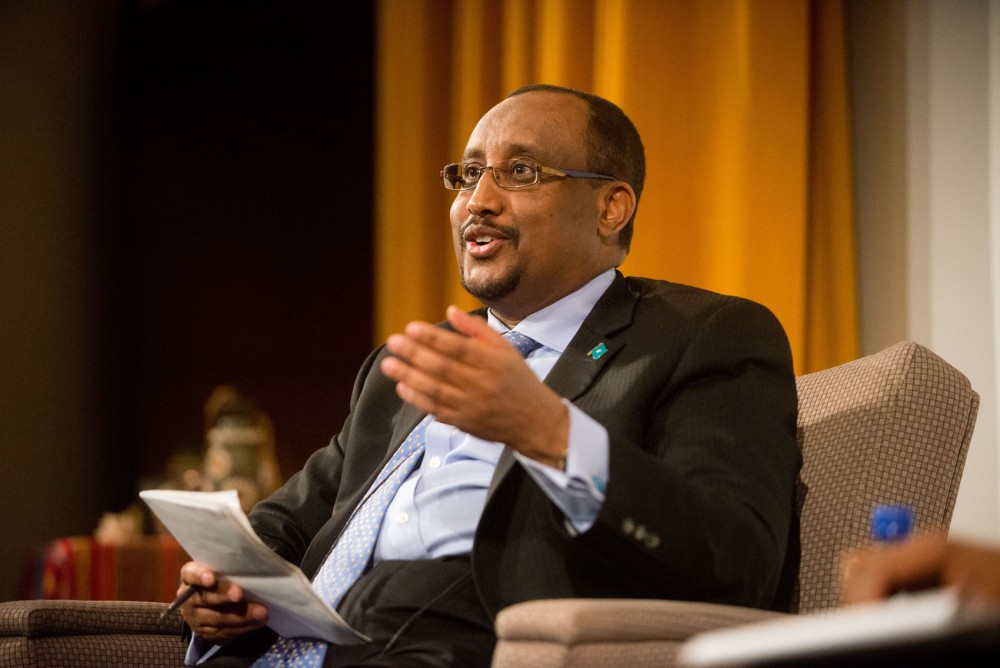The former prime minister of Somalia, who oversaw the drafting of the new constitution and helped lead the country toward stabilization, visited Minneapolis over the weekend.
Abdiweli Mohamed Ali, who led the country from 2011 to 2012, conducted forums in English and Somali on Friday and Saturday, focusing on his personal account of ending the transitional government and his hopes for the country’s future.
Ali’s visit highlights the stabilization of the East African country in recent years and the optimism of Somali-Americans to return and contribute.
“This ushers a new era and a new beginning for the country,” he said in English to a diverse crowd at the University of Minnesota’s Humphrey School of Public Affairs on Friday night. “Hopefully this will also bring a substantive to the morale and material being of the Somali people.”
The former prime minister’s visit comes about three weeks after a visit from current Somali President Hassan Sheikh Mohamud, as well as the United States’ decision to officially recognize the Somali government for the first time since 1991.
Ali is considered by many to be responsible for enacting a permanent government in a country that for many years had fallen into lawlessness.
“He’s one of the intellectual giants of the Somali diaspora, and it’s good to have him in Minnesota,” said Abdulkadir Warsame, executive director of the Riverside Plaza Tenants Association. “It means a great deal — he’s a historic figure now.”
Somalia has had several transitional administrations since 2004. Ali was appointed as prime minister in June 2011 and set up a timetable for drafting a constitution, which was approved in August 2012. It was quickly followed by the U.N.-backed formation of the Somali parliament and the election of the current president.
The armed extremist group al-Shabab, which controlled most of the nation for nearly two decades, left Mogadishu, the capital city, in 2011. The government has since pushed the militants out of 90 percent of major towns in southern Somalia, Ali said.
Hamid Ali Masheye, who was Somalia’s State Minister for Foreign Affairs under Ali, said the past few years have filled Somalis with hope.
“All Somalis are expecting development,” he said. “And also they are expecting to use the resources of the country for the welfare of the Somali people.”
Masheye said those who have lived in the U.S. and acquired skills and education could go back and help Somalia’s renewal.
“The people that live here, they have two countries now — the United States and Somalia,” he said.
Zeynab Egale, a global studies senior at the University, said she already bought her ticket to go back after she graduates in May.
“I left in 1992, but I have a favorite memory of a beautiful place, and I still have that picture,” she said. “That’s why I want to go back to see if that picture in my mind confirms reality.”
Warsame said the permanent government is a new dawn for Somalis looking for the opportunity to reclaim their heritage. But for many Somali-Americans, the ties to both countries are equally emotional.
“America is our home; we will never leave America,” he said, “just like we can never leave our Somali identity.”
—The Associated Press contributed to this report.


